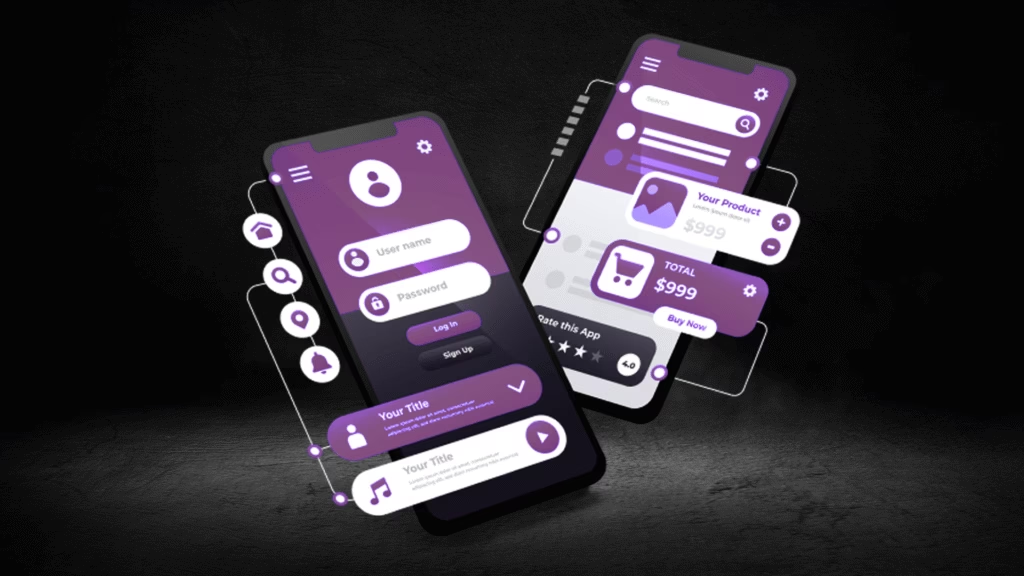At its core, AI refers to the simulation of human intelligence in machines, enabling them to perform tasks that typically require human cognition, such as learning, reasoning, and problem-solving. Machine learning, a subset of AI, focuses on developing algorithms that allow computers to learn from and make decisions based on data. When these advanced technologies are applied to mobile app development, the result is a new generation of apps that can adapt, evolve, and improve over time.
Globally, the trend towards AI-powered apps is gaining momentum. From virtual assistants like Siri and Alexa to predictive maintenance apps and personalized e-commerce platforms, AI is revolutionizing how users interact with their mobile devices. These intelligent apps can analyze user data in real-time, understand preferences, and deliver tailored experiences that enhance user engagement and satisfaction.
The significance of AI in mobile app development cannot be understated. It enables developers to create applications that are not only functional but also highly responsive to the needs and behaviors of users. As AI continues to evolve, its applications in mobile app development will expand, driving further advancements and setting new benchmarks in innovation.
This introduction sets the stage for a deeper exploration of AI-powered mobile app development, particularly focusing on India’s burgeoning role in this dynamic field. By understanding the foundational concepts and global trends, we can better appreciate the transformative impact of AI on the mobile app industry.
The Growth of AI in India’s Tech Ecosystem
India’s tech ecosystem has witnessed a remarkable surge in the adoption and development of artificial intelligence (AI) over the past few years. With its vast pool of talented engineers, data scientists, and researchers, India is fast becoming a global hub for AI innovation. According to a report by NASSCOM, the Indian AI industry is expected to reach a valuation of $8 billion by 2025, growing at a compound annual growth rate of 20.2%. This growth is underpinned by several factors, including market trends, government initiatives, and the increasing involvement of both startups and established IT firms.
Major Indian cities such as Bengaluru, Hyderabad, and Pune have emerged as focal points for AI-driven innovation. Bengaluru, often dubbed the ‘Silicon Valley of India,’ is home to numerous AI startups and tech giants that are pushing the boundaries of mobile app development and other AI applications. Hyderabad and Pune are following closely, with a growing number of companies and research institutions investing in AI technologies.
The role of tech startups in advancing AI cannot be overstated. Startups like Haptik, Niki.ai, and SigTuple are leveraging AI to create groundbreaking solutions in fields ranging from healthcare to customer service. These startups are supported by established IT firms like Infosys, TCS, and Wipro, which are increasingly incorporating AI into their service offerings. Educational institutions like the Indian Institutes of Technology (IITs) and Indian Institutes of Information Technology (IIITs) are also playing a crucial role by producing skilled graduates and fostering research in AI.
The investment landscape in India has also evolved significantly, with a growing number of venture capitalists showing interest in AI-driven projects. In 2020 alone, AI startups in India raised over $370 million in funding, a testament to the burgeoning investor confidence in this sector. Government initiatives such as the National AI Strategy and the establishment of AI research labs further underscore the country’s commitment to becoming a leader in AI innovation. These concerted efforts are paving the way for a robust and dynamic AI ecosystem in India.
Case Studies: Successful AI-Powered Mobile Apps from India
India has seen a surge in the development of AI-powered mobile apps, transforming multiple industries through innovative solutions. One such example is the healthcare app “Practo,” which leverages AI to provide efficient patient-doctor interactions. The app utilizes machine learning algorithms to match patients with the most suitable doctors based on their medical history and preferences. During development, the team faced challenges in integrating a vast amount of medical data to ensure accuracy. They overcame this by employing natural language processing (NLP) techniques, significantly improving the user experience. Practo’s AI-driven approach has revolutionized patient care by reducing wait times and enhancing diagnostic accuracy.
In the fintech arena, “Paytm” stands out as a pioneering AI-powered mobile app. Paytm uses AI for fraud detection, personalized financial advice, and customer service automation. The development team integrated advanced machine learning models to analyze transaction patterns and identify fraudulent activities in real-time. One of the major challenges was maintaining data privacy and security, which they addressed through robust encryption and secure data handling practices. Paytm’s AI capabilities have not only fortified security but also provided users with tailored financial solutions, thereby expanding its user base exponentially.
The e-commerce sector has also benefited from AI advancements. “Myntra,” a leading fashion e-commerce platform, employs AI to enhance its recommendation engine and inventory management. By utilizing predictive analytics and machine learning, Myntra can forecast fashion trends and personalize shopping experiences for its users. The development process involved extensive data collection and training AI models, which initially posed a challenge due to the dynamic nature of fashion trends. Myntra’s adoption of AI has resulted in improved customer satisfaction and increased sales, making it a key player in the market.
In the entertainment industry, the AI-powered app “Gaana” has made significant strides. Gaana uses AI algorithms to provide personalized music recommendations and enhance user engagement. The development team faced the challenge of creating a recommendation system that could cater to diverse musical tastes. By implementing collaborative filtering and deep learning techniques, they managed to deliver a highly personalized user experience. Gaana’s AI-driven approach has led to higher user retention rates and a growing subscriber base.
These case studies illustrate the transformative impact of AI in mobile app development in India. By overcoming various challenges and harnessing sophisticated AI technologies, these apps have set new benchmarks in their respective fields, offering enhanced services and improved user experiences.
Future Prospects and Challenges for AI-Powered Mobile Apps in India
The landscape of AI-powered mobile app development in India is poised for significant advancements. With the rapid evolution of AI technology, mobile apps are expected to become increasingly sophisticated, offering personalized user experiences tailored to individual preferences. AI’s ability to analyze vast amounts of data enables predictive analytics, allowing apps to anticipate user needs and behaviors, thereby enhancing user engagement and satisfaction.
One of the most promising trends in AI-powered mobile apps is the integration of enhanced security measures. AI algorithms can detect unusual patterns and potential threats in real-time, providing robust protection against cyber-attacks and ensuring user data privacy. This capability is particularly crucial as the volume of sensitive data shared via mobile apps continues to grow.
However, the path to widespread adoption of AI-powered mobile apps in India is not without challenges. Data privacy concerns remain a significant hurdle, as users are increasingly wary of how their information is collected and used. Ensuring compliance with data protection regulations will be essential for gaining user trust and fostering a secure digital environment.
Another challenge is the need for skilled talent in AI and mobile app development. The demand for professionals proficient in AI, machine learning, and app development far exceeds the supply, creating a talent gap that needs to be addressed through targeted education and training programs. Investing in the development of a skilled workforce will be crucial for sustaining growth in this sector.
Ethical considerations also play a pivotal role in the development and deployment of AI-powered mobile apps. The potential for biased algorithms and unintended consequences necessitates a careful approach to AI implementation, ensuring that technologies are used responsibly and equitably.
Despite these challenges, India has the potential to emerge as a global leader in AI-driven mobile app development. By prioritizing data privacy, investing in talent development, and adhering to ethical standards, India can harness the full potential of AI to revolutionize mobile app experiences. Collaboration between industry, academia, and government will be key to overcoming these obstacles and driving innovation in the AI-powered mobile app ecosystem.








